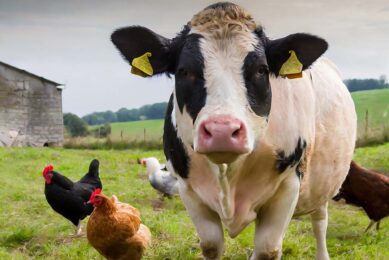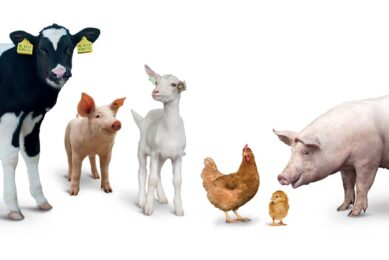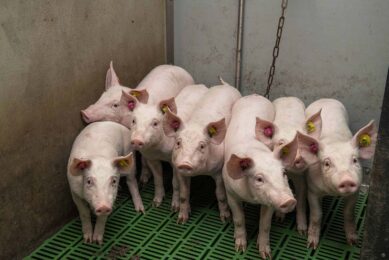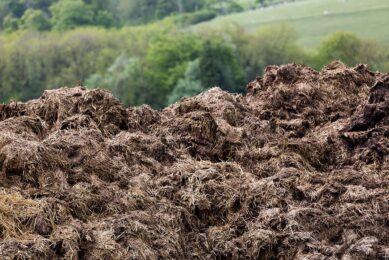Antibiotic-free swine production, is it possible?

In the 1940s, antibiotics used as a therapeutic agent for humans became common. Around the same period, sick farm animals were treated with antibiotics, and besides the curative action, a secondary effect emerged – antibiotics could prevent disease and promote growth.
Since then and until recently, antibiotics used as growth promoters (AGP) and prophylactic were considered essential for livestock production. In the 1980s, warnings about Antibiotic Microbial Resistance (AMR) began to attract attention, pushing many countries to regulate their use and even phase them out of livestock production. AMR is a worldwide concern, and it is a war we must win.
The shift to reduced antibiotic use is a challenge. Holistic approaches are needed, from reducing disease pressure to nutritional strategies to improve the animals’ resilience. But how can intensive swine production ensure animal health, productivity, and profitability in this new era?
Growing with phytogenics
At the time of weaning, an immature digestive tract makes the piglet susceptible to disorders, which often results in anorexia, growth depression, diarrhoea, and in the worst case, death. Specific phytogenic feed additives have been shown to support the piglet during this challenging period. Flavour-enhancing phytogenic stimulate feed intake, reducing the damages of intestinal epithelia. Plant bio-actives with antioxidant and anti-inflammatory actions also promote a better intestinal mucosal barrier defence against stressors/aggressions (like bacteria toxins or attachment). Essential oils are known for their antibacterial effects. However, high quantities must be used, which is sometimes not viable, either for palatability or toxicity risks. Yet, specific phytogenics can interfere with bacterial pathogenicity at much lower levels. Bacteria use Quorum Sensing to communicate and detect their population density. When a particular density is reached, the bacteria modify their gene expression to produce virulence factors and become pathogenic – diseases possibly occur. Thus, phytogenic actives can interfere with bacterial communication, and bacterial infections can be controlled and reduced. The need for prophylactic antibiotics (and zinc oxide) and medication has been reduced.
During the growing-fattening phase, phytogenics are also a valuable natural tool to promote body growth and feed efficiency. By stimulating the secretion of digestive enzymes and nutrient absorption, phytogenics increase feed digestibility. In addition, their antioxidant and anti-inflammatory effects support the animal facing stressful situations (management, environmental, feed competition, etc.). Plant-based compounds also have proven positive effects on reducing ammonia emissions, reducing the harmful impact of high aerial ammonia on the respiratory tract mucosa of animals.
Are you ready to enter the new era?
Antibiotics may still be necessary to ensure that animals’ health is safeguarded, but their use as growth promoters and as prophylactic agents are or will soon be a turned page. Natural plant bio-actives can help to support sustainable and antibiotic-free swine production. Delacon’s phytogenic solutions allow the accomplishment of safe and sustainable swine production practices.






